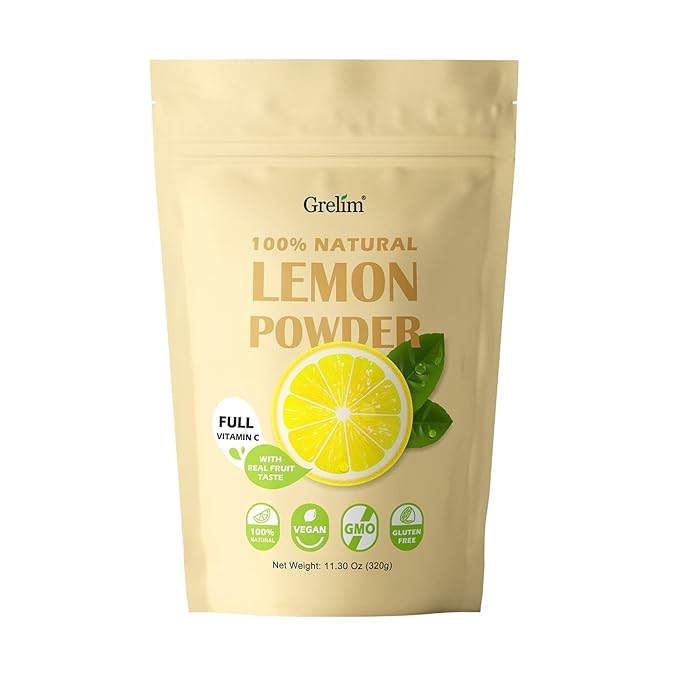Lemons, with their bright yellow hue and zesty flavor, have been a kitchen staple for centuries. Beyond their culinary uses, lemons are steeped in folklore and old wives’ tales, encompassing health benefits, household hacks, and mystical properties. This article explores 20 fascinating old wives’ tales about lemons, shedding light on the truth and myths surrounding this citrus wonder.
History of Lemons
Lemons have a rich history dating back over a thousand years. Originating in Southeast Asia, they were used by ancient Indians, Egyptians, and Romans, mainly for medicinal purposes and as an antidote to various poisons. Lemons made their way to Europe around the Middle Ages and were later brought to the Americas by Christopher Columbus in 1493.
In the 17th and 18th centuries, lemons became crucial for sailors to prevent scurvy, a disease caused by vitamin C deficiency. This practical use highlighted the importance of lemons, not just as a culinary ingredient, but as a lifesaver.
Today, lemons are cultivated in tropical and subtropical climates worldwide, with India, Mexico, and China being the top producers. They are an indispensable ingredient in cuisines around the globe, used in everything from beverages and desserts to savory dishes.
Understanding how to select the best lemons, preserving them for future use, and appreciating their historical significance can deepen your appreciation for this versatile citrus fruit. Whether you’re squeezing a lemon over a piece of grilled fish, zesting it into a cake, or simply enjoying a refreshing glass of lemonade, these tangy fruits are a testament to the adage that sometimes the simplest ingredients can bring the most joy to our tables.
1. Lemon for Sore Throat: It’s commonly believed that drinking warm lemon water can soothe a sore throat. The truth? Lemon’s acidity helps break down mucus, and its vitamin C boosts the immune system.
2. Lemon as a Natural Bleach: An old wives’ tale suggests that lemon juice can naturally bleach clothes and remove stains. Indeed, the citric acid in lemons can lighten fabric blemishes when used properly.
3. Lemon for Weight Loss: Many claim that lemon water kick-starts metabolism and aids weight loss. While lemons can enhance hydration and satiety, they’re not a magic weight loss solution.
4. Lemon to Prevent Colds: The belief that consuming lemons can prevent colds stems from their high vitamin C content. While vitamin C supports the immune system, it’s not a foolproof cold preventative.
5. Lemon as a Love Spell Ingredient: Folklore suggests that lemons can be used in love spells to attract or maintain love, reflecting the fruit’s association with freshness and purification.
6. Lemon for Brightening Skin: Lemons are touted for their skin-brightening effects due to their vitamin C. However, direct application can irritate the skin and cause photosensitivity.
7. Lemon to Freshen the Air: Placing lemon slices or peels around the home is said to purify the air. Lemons do have a refreshing scent, but their air-cleaning capabilities are limited.
8. Lemon for Shiny Hair: Rinsing hair with lemon juice is believed to add shine. While it can remove residue, it can also dry out hair if used excessively.
9. Lemon to Deter Cats: Some say that lemons can keep cats away from gardens or furniture. Cats generally dislike citrus scents, making this tale somewhat accurate.
10. Lemon as a Fever Reducer: There’s a tale that wearing lemon slices in socks can reduce fever. This lacks scientific backing, though staying hydrated with lemon water can help in fever management.
11. Lemon to Whiten Teeth: Brushing teeth with lemon juice is thought to whiten them. Be cautious, as lemon’s acidity can erode tooth enamel.
12. Lemon for Better Digestion: Drinking lemon water is believed to improve digestion. Lemons can stimulate saliva and water intake, aiding in digestion to some extent.
13. Lemon as a Good Luck Charm: Carrying a lemon is said to attract happiness and good luck. While charming, there’s no evidence to support this claim.
14. Lemon to Alleviate Anxiety: The scent of lemon is claimed to reduce anxiety and depression. Lemon’s refreshing aroma can indeed have a mood-lifting effect.
15. Lemon for Detoxification: Lemons are heralded for their detoxifying properties. While they support liver function, the body’s detoxification is complex and not reliant on any single food.
16. Lemon to Cure Hiccups: Swallowing a teaspoon of lemon juice is an old remedy for hiccups. The sour shock may interrupt the hiccup cycle for some.
17. Lemon to Enhance Concentration: There’s a belief that lemon aroma enhances concentration and alertness. Some studies suggest citrus scents can improve cognitive function.
18. Lemon as a Silver Polish: Rubbing lemon on silverware is said to restore its shine. The citric acid can indeed remove tarnish, but it’s not as effective as specialized silver cleaners.
19. Lemon for Nausea Relief: Sniffing lemon or drinking lemon water is thought to relieve nausea. This can work for some, as citrus scents and hydration are known to help.
20. Lemon to Keep Rice from Sticking: Adding lemon juice to cooking rice is believed to prevent sticking. The acid helps separate grains, making this tale true.
Lemons are a fascinating fruit, rich in history, folklore, and old wives’ tales. While some claims about lemons are backed by science, others remain purely anecdotal. Nonetheless, lemons continue to be celebrated for their versatile uses in health, beauty, and beyond, embodying a blend of myth and reality that captivates our imagination.
hen life gives you lemons, make sure they’re the best ones you can find! Choosing the right lemons at the grocery store, preserving them for longevity, and knowing a bit about their rich history can enhance your culinary experiences. Lemons, with their bright color, tangy taste, and refreshing aroma, are a staple in kitchens worldwide. Here’s an insightful look into selecting the best lemons, preserving them effectively, and a glimpse into their fascinating backstory.
Choosing Lemons at the Grocery Store
Look for Color and Texture: The best lemons are vibrant yellow, without any green tinges, which indicate full ripeness and maximum juice content. The skin should be thin, smooth, and slightly glossy. Thick-skinned lemons often have less flesh and are less juicy.
Feel the Weight: Lemons should feel heavy for their size, suggesting a juicier fruit. A lighter lemon might be dry inside and yield less juice.
Check for Soft Spots and Blemishes: Avoid lemons with soft spots, wrinkles, or blemishes. These can be signs of over-ripeness, aging, or damage, which could affect the lemon’s taste and longevity.
Firmness: A ripe lemon will have a slight give when gently pressed. If it’s too hard, it’s not ripe enough; if it’s too soft, it may be past its prime.
Lemons are unique in that they can produce fruit all year round, especially in ideal growing conditions. However, their peak season typically varies by region:
- In the United States: Lemons are in peak season from late winter through early summer, with the highest abundance typically from December to April. California and Arizona are major lemon-producing states, and thanks to their mild climates, they can offer lemons year-round, with a peak in production during the winter and spring months.
- In the Mediterranean region: The peak season for lemons is slightly earlier, usually from November to March. Countries like Italy and Spain, renowned for their citrus fruits, harvest lemons during these months when they are at their juiciest and most flavorful.
- In Australia: Lemons are in season during the winter months, from June to August, due to the Southern Hemisphere’s reversed seasons.
While lemons are available in supermarkets year-round due to global imports and the fruit’s ability to store well for long periods, purchasing lemons during their local peak season can ensure you’re getting them at their freshest and most flavorful. Lemons harvested in season tend to have a higher juice content and a more vibrant flavor, making them a superior choice for both cooking and fresh consumption.
Preserving Lemons
Refrigeration: Lemons can last a long time when stored properly in the refrigerator. Place them in a plastic bag to retain moisture and extend their shelf life, typically up to four weeks.
Room Temperature: If you plan to use them within a week, storing lemons at room temperature is fine. Keep them away from direct sunlight in a cool place.
Freezing: For long-term storage, lemons can be frozen. Freeze whole lemons or slice them and place them in freezer bags. You can also freeze fresh lemon juice in ice cube trays for easy use in recipes.
Lemon Zest: If you only need the juice, zest the lemons first and freeze the zest for later use in baked goods or as a flavor enhancer.



